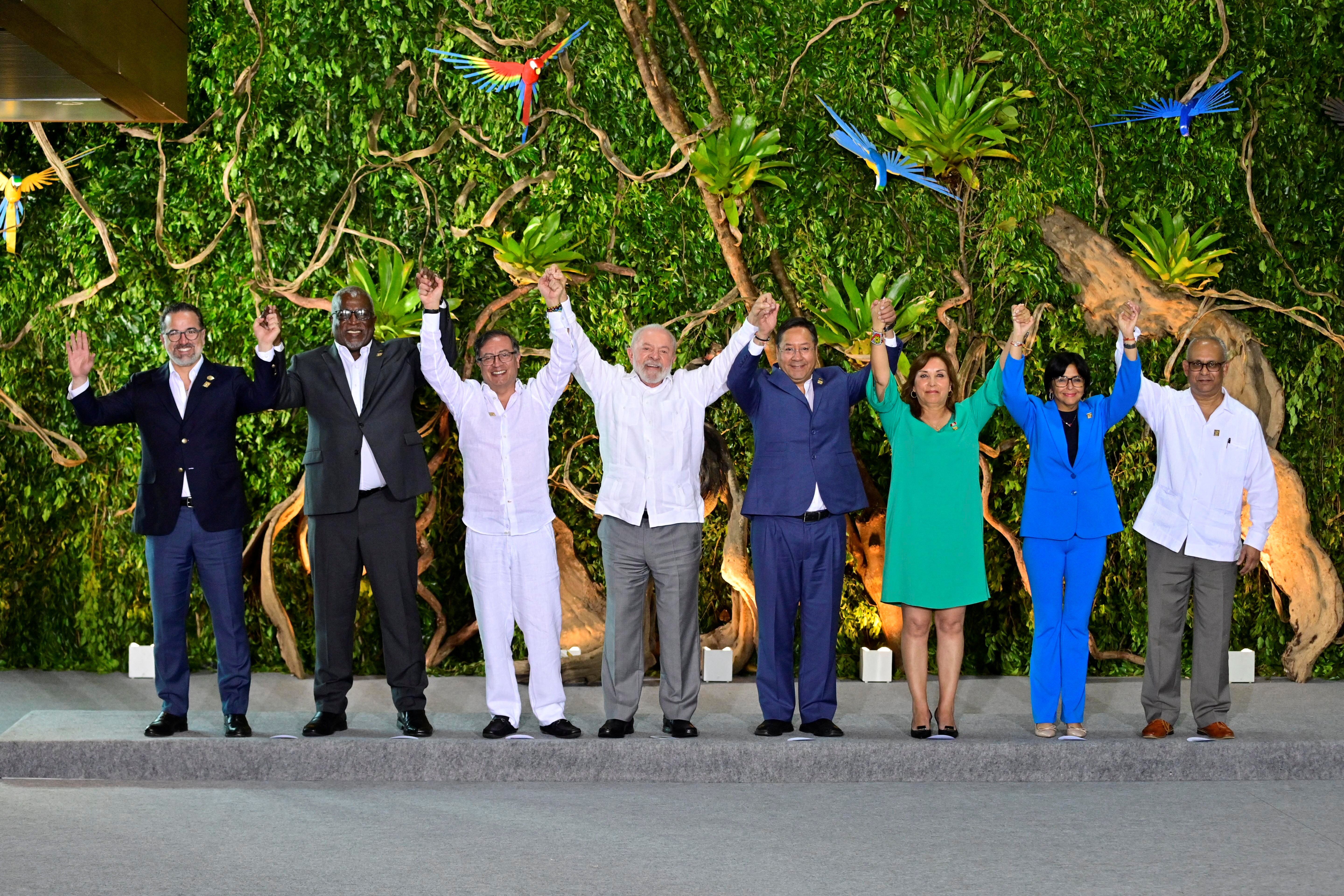Leaders of eight Amazon nations converged in Brazil this week for the first time in 14 years to devise a plan to save the Amazon rainforest, but they appeared to fall short of finding common ground on how to end deforestation.
A joint statement released after the summit implied that countries would set out their own conservation goals rather than adhere to a shared regional policy. There was also no consensus on how to end illegal gold mining in the Amazon.
Ahead of the summit, Brazil's President Luiz Inácio “Lula” da Silva proposed an agreement to end deforestation by 2030.
But a key striking point has been oil exploration. Colombia’s leftist President Gustavo Petro has called for a complete end to oil exploration in the Amazon, which has been a point of contention in Brazil as the country’s state-run Petrobras company has been trying to get a license for an oil drilling project near the Amazon River.
Indeed, ending deforestation comes at a significant cost for Amazon countries, which will have to forgo profits from ranching, agriculture, and new oil and mining projects. Lula says he hopes some of these costs can be offset by international contributions and carbon credits. Norway and Germany are already funding Amazon preservation, and the Amazon nations believe they could convince other countries to contribute if they show a united front -- an effort that appears to have fallen short.
In addition to international contributions, Amazon nations hope to take advantage of the growing carbon market, where an organization that pollutes can buy a credit worth one ton of carbon dioxide, which then goes toward carbon-lowering efforts in Amazonian communities. The World Bank currently estimates that the carbon credit market in the rainforest is worth $210 billion a year.
